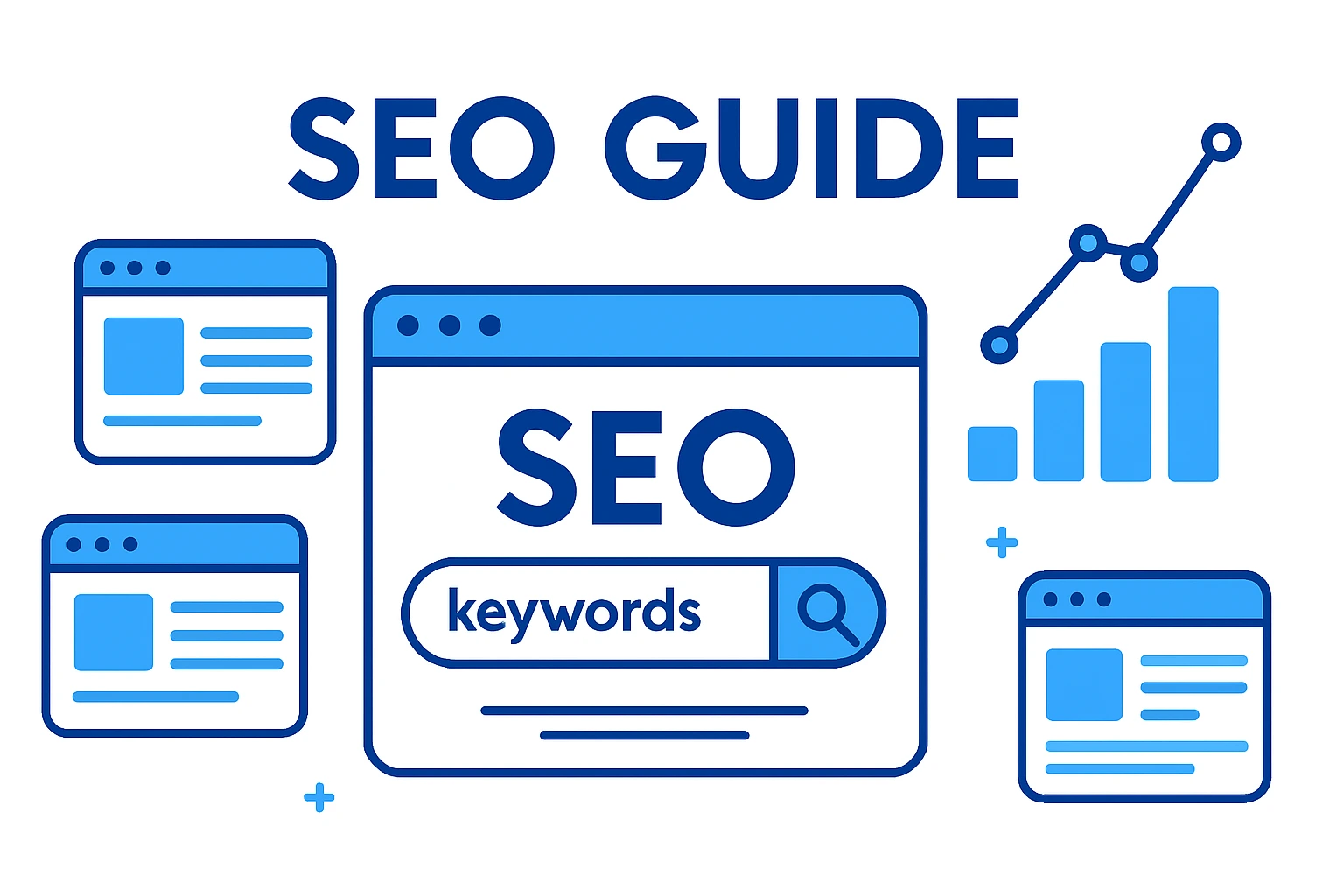Step-by-step SEO guide from zero knowledge to professional SEO Expert Knowledge.
What is SEO?
Here’s a unique article on “What is SEO” crafted in your personal style—conversational, relatable, clear, and enthusiastic:
What is SEO? A Friendly and Simple Guide to Understand It
If you’ve ever wondered how some websites pop up right on top when you search for something on Google, you’re in the right place! That magic trick is called SEO, or Search Engine Optimization. But don’t let the fancy name scare you—SEO is simply the art and science of helping your website get noticed by search engines and, more importantly, by people like you and me.
Table of Contents
- What Exactly is SEO?
- Why SEO Matters More Than Ever
- How SEO Actually Works
- Key Components of SEO
- Common SEO Myths Debunked
- FAQs About SEO
- Wrap Up: Why You Should Care About SEO
What Exactly is SEO?
Imagine the internet as a gigantic library with billions of books (websites) inside. SEO is like the librarian who helps you quickly find the exact book you’re looking for. In more techy terms, SEO is a set of strategies and practices that make your website more appealing and understandable to search engines like Google, Bing, or Yahoo so that they can show your site higher up in search results.
Why SEO Matters More Than Ever
Think about it: When you look something up online, do you scroll through dozens of pages, or just pick from the first few results? Exactly! Most people stick to the first page (or better yet, the top few results) because who has the time?
This means if your website isn’t optimized for search engines, it’s like having a fantastic store hidden in an alley with no signs pointing to it. SEO helps your site get on the main street where everyone’s looking.
How SEO Actually Works
Here’s where things get interesting—search engines are smart, but they need clues to understand what your website is about. So they use automated programs called “crawlers” or “bots” that scan the web, reading your website’s content, links, and structure. Then, they store this info in huge databases (called indexes).
When you type a search query, the engine dives into this index and uses complex algorithms to show you the most relevant and trustworthy websites first.
Key Components of SEO
Let’s break SEO down into bite-sized pieces:
- Keywords: These are the words and phrases people type into search engines. Including relevant keywords naturally in your content helps search engines match your site to what users want.
- Content Quality: Your content should answer questions, provide value, and be easy to understand. High-quality content keeps visitors happy and makes search engines happy too.
- On-Page SEO: This includes how your website’s pages are structured—things like titles, headers, meta descriptions, and URL structure. All these make your site easier to “read.”
- Backlinks: Think of backlinks as votes or endorsements from other websites. When reputable sites link to you, it tells search engines your content is trustworthy.
- User Experience: A fast-loading, mobile-friendly, and easy-to-navigate site keeps visitors coming back and signals that your site is legit.
Common SEO Myths Debunked
- “SEO is dead.” Nope, SEO is very much alive and keeps evolving.
- “More keywords = better SEO.” Stuffing your content with keywords actually hurts your ranking. Quality over quantity!
- “SEO is a one-time thing.” SEO is ongoing. Google updates algorithms often, so staying current is key.
- “Only Google SEO matters.” While Google is big, optimizing for other platforms like YouTube or Amazon is also valuable depending on your goals.
FAQs About SEO
Q1: How long does SEO take to work?
A: It usually takes a few months to see noticeable results because search engines need time to re-crawl and rank your updated content.
Q2: Can I do SEO myself?
A: Absolutely! With patience and learning, anyone can start optimizing a website step by step.
Q3: Does SEO cost money?
A: SEO itself is free, but sometimes tools or hiring experts can speed things up. Basic SEO practices are accessible to everyone.
Wrap Up: Why You Should Care About SEO
SEO is basically about making your website the best answer for what people search for. It helps your content get discovered, brings in traffic, and can turn casual visitors into loyal customers or followers.
Instead of thinking of SEO as complicated tech stuff, think of it as simple ways to help people and search engines understand your website better. Keep your content helpful, your site user-friendly, and stay consistent with your efforts—and you’ll be on your way to standing out in the crowded online world.
So next time you Google something, remember the magic behind those top results—it’s SEO hard at work!

